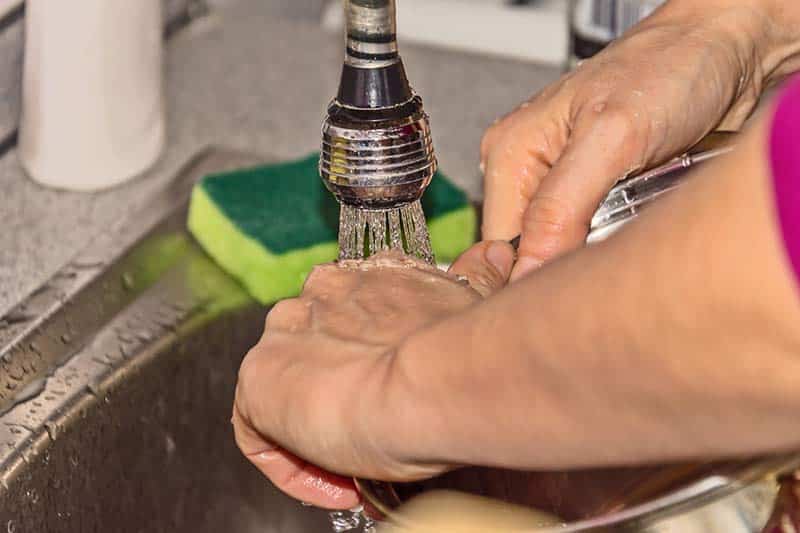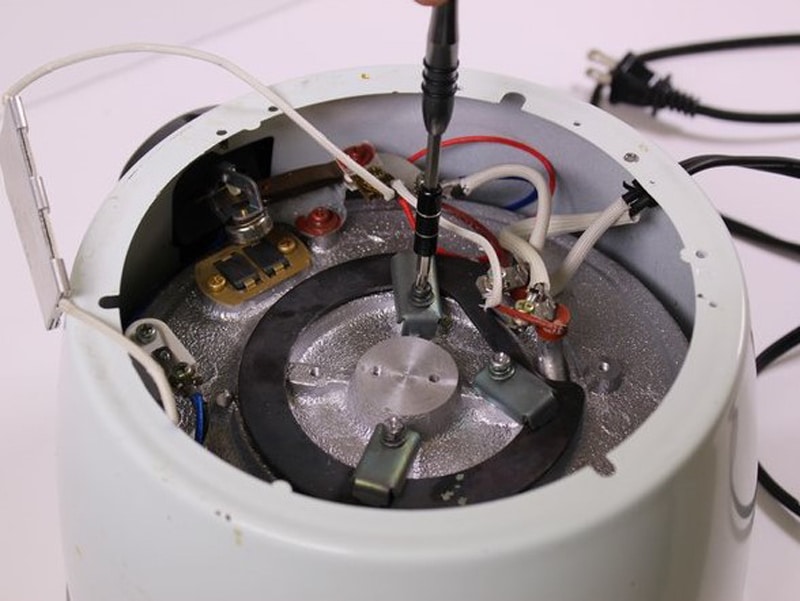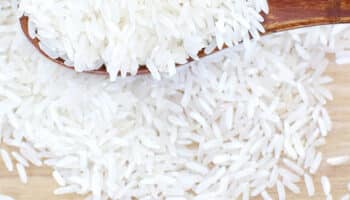What’s that strange odor coming from the kitchen? Here are 6 weird smells your rice cooker might make (with fixes).
Rice cookers are life-changing. Not only do they cook rice to perfection, but they also save us time and require virtually no attention from us. And while normally they keep quiet and cause no trouble, from time to time, they might act up and start making some weird smells.
There could be many reasons for this. From using expired cleaning components to not cleaning them properly, the possibilities are endless. That being said, there are some common culprits that we can look into.
Below, I’ve prepared a list including those most likely to blame, their underlying causes, and the actions you can take to address them.
Sure, nothing terrible will happen if you leave this problem unattended for a day or two, but letting it continue for longer could put you at risk of becoming ill, and we definitely do not want that.
Besides, do you really want that awful smell tainting the sanctity of your kitchen? I don’t know about you, but to me, cooking is very relaxing, so having unwanted smells in the process, makes it really hard to stay zen.
Without further ado, let’s return the freshness to your kitchen!
Ridding a Rice Cooker of Weird Smells
As stated above, there could be a wide variety of reasons behind your current situation. Even if you clean your rice cooker adequately and often, there’s a chance you could be using the wrong components, or that they might be expired.
Most likely, your rice cooker is making weird smells due to:
- Improper cleaning
- Starch accumulation
- Humidity and fungi
- Using old vinegar
- Overheating
- Unwanted visitors
As you can see, most of these can be easily fixed and require no replacement parts or technical intervention. Relax! After going through this list, your rice cooker will be as good as new.
#1 Improper Cleaning

How thorough are you when washing your rice cooker?
If your appliance is producing weird smells, chances are, you’re leaving some grains in between its components. This is very easy to miss, so don’t beat yourself up!
Rice, like all other organics, goes bad after some time, so leaving even the tiniest amount of it inside your rice cooker can cause it to smell terrible. Imagine rotten food meets fermentation.
Solution: Always make sure to disassemble your appliance for cleaning to guarantee that you’re scrubbing off each and every bit of leftover food. Using lukewarm water can help loosen any residue and make the process simpler.
#2 Wash Your Rice
Yet another reason why your rice cooker could be making weird smells is starch accumulation. This can not only cause sensory discomfort, but also spillage and clumpy rice.
Just like potatoes, pasta, and grains, rice is a carbohydrate-rich in polysaccharides, which is often used individually as a sauce thickener. When your rice cooks, the starch reacts to the heat and can release an unpleasant smell into the air.
Moreover, failing to properly clean your rice cooker between batches will allow for the starchy remains on your pot to ferment, making it smell like rotten yeast!
Solution: Make sure to wash your rice thoroughly.
With the help of a colander, place it under running water and rinse it vigorously. You’ll start to see the water falling to the sink become a little milky, that’s the starch. Continue doing this until it runs clear. It should take no longer than a minute.
#3 You’re Not Letting It Dry
Just like every other pot, pan, and kitchen appliance in your house, rice cookers need to be left to dry properly after being used. This not only prevents making a mess in your kitchen drawers but also eliminates any chance of mold formation.
If your rice cooker is making weird smells, it could be because you’re putting it back together while it’s still humid. Sometimes, it’s not even something you didn’t do, but your environment.
Solution: If you live in a very humid area, it’s a good idea to use a dishrag and wipe off any excess water from your appliance after having left it overnight in the dish rack.
#4 Your Vinegar Is Old
If you’re a true rice aficionado, you’ve probably heard about cleaning your rice cooker with water and vinegar.
While this cleaning method does work wonders, you have to be very careful about the vinegar you’re using. Old vinegar won’t expire, but it tends to go stale and start smelling much more acidic and concentrated, which, when applied to your rice cooker, could create an unpleasant smell.
Solution: Always check your vinegar before using it to clean your rice cooker. If the smell is too intense or concentrated, it might still be good for salads or other purposes, but keep it away from your appliance and get a new bottle.
#5 Overheating

Does the smell coming from your rice cooker resemble burning plastic? The issue might be unrelated to food residue or stale vinegar.
If your rice cooker smells like burned electronics and plastic, chances are something’s overheating inside it. This could be caused by one of the appliance’s components failing.
Goes without saying, but you should address this issue as soon as possible. Leaving the matter unattended can lead to a general malfunction of the rice cooker and even a house fire.
Solution: For this, you’ll need a screwdriver and a multimeter, if you have one.
- Unplug your rice cooker and let it cool down
- Turn it upside down to expose the screws at the bottom and undo them
- Expose the appliance’s guts
- Identify your rice cooker’s thermal fuse, heating element and thermostat
- Test them for conductivity
If any of the components show no conductivity, it’s time to replace them in order to avoid greater consequences.
#6 Unwanted Denizens
This might sound like something pulled out of a 1960s horror film directed by Alfred Hitchcock, but it happens.
As you know, many domestic insects and lizards are attracted to heat, which makes your rice cooker an ideal shelter for them…or at least, so it seems. I will not go into more detail, but you know where I’m heading.
If your rice cooker is making weird burning smells, and you know the culprit is not one of its internal components, it would be a good idea to double-check for unwanted tenants inside it . This is extremely rare, but hey, we want to cover all bases here, don’t we?
I’m 99.9% certain this is not your problem, so relax!
Here’s a great tip on how to prevent foreign inhabitants in your rice cooker.
Summarizing
Now that you know the culprits behind your olfactory distress, you can address them easily and without taking too much time, but the question remains. In short, what can you do to make your rice cooker fresh and odor-free again if the aforementioned conditions have already set in?
Clean your rice cooker, piece by piece
Depending on your rice cooker’s model, you might be able to remove the pot and some other components to clean them individually. If this is the case, make sure to leave them soaking in warm water for a couple of minutes to loosen any residue stuck to them.
Using a soft sponge and copious amounts of dishwashing soap will not on only leave your rice cooker’s pot smelling incredible, but also kill any leftover bacteria that could make it stinky.
Dry, Dry, Dry
This is extremely important. As you know, mold is very harmful to your health, and eating it with your rice is not only unpleasant but dangerous.
Always remember to leave your rice cooker to dry overnight when possible. By the end of the process, the Sahara desert should have more moisture. If you still spot a couple of droplets of water on the surface, use a clean dish rag to remove the excess.
Use Fresh Vinegar
As stated above, vinegar won’t go bad, but it can become too concentrated. If you’re going to use it to clean your rice cooker, it’s very important that you buy a new bottle, as this will prevent any unwanted acidity and concentration from sticking to your appliance.
Take a Look Under the Hood
While overheating and burning plastic is the least likely culprits for making your rice cooker smell weird, the possibility should still be considered.
If you suspect this to be the issue, follow the steps from point #5 to disassemble your appliance and test the components for conductivity. Making sure to keep your internal components in check and functioning properly will not only guarantee the disappearance of unwanted smells but also extend your rice cooker’s lifespan.
Conclusion
Having your rice cooker make weird smells can be very frustrating and off-putting. Even more so is not knowing where it’s coming from, leaving you with two choices: not using it, or having to tolerate the unpleasant smell.
More often than not, the reason behind this occurrence is simply excess starch, improper washing, and leftover grains of rice, rotting inside your appliance. That being said, there will always be a slight chance of a failing component being to blame.
It’s very important to give your rice cooker proper maintenance and wash it adequately, as well as making sure that it’s completely dry before reassembling it to prevent the formation of mold, which can be very harmful to you and your family if consumed accidentally.
Remember, while the list above includes the most common reasons why your rice cooker might be making weird smells, there will always be other, rarer explanations that you should not ignore.
Thank you very much for sticking with me all the way to the end. I hope I could help you resolve the issue. If you learned something new today, why not check out our other great resources below?
Bon Appétit!







